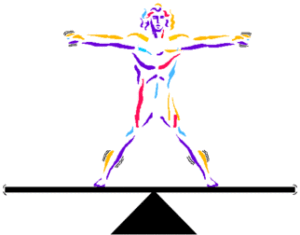“Ayurveda is not about adding years to your life, it’s about adding life to your years.”
– Deepak Chopra, MD
For thousands of years, medical practitioners in India have counseled their patients to make choices that bring forth well-being from the inside out. They’ve empowered people to take charge of their health through diet, lifestyle, seasonal and daily routines, herbal medicine, touch therapy, detoxification, energy work, and spiritual practice. Numerous Western physicians and health counsellors leverage this ancient wisdom in their practices.
 Michelle S. Fondin offers an introduction to Ayurvedic medicine in her book, The Wheel of Healing with Ayurveda: An Easy Guide to a Healthy Lifestyle. Her work centers on balance – i.e., a healthy integration of life purpose, body, spirit, emotions, memories, relationships, vocations, finances, and environment. If any one element is out of balance, all elements are out of balance.
Michelle S. Fondin offers an introduction to Ayurvedic medicine in her book, The Wheel of Healing with Ayurveda: An Easy Guide to a Healthy Lifestyle. Her work centers on balance – i.e., a healthy integration of life purpose, body, spirit, emotions, memories, relationships, vocations, finances, and environment. If any one element is out of balance, all elements are out of balance.
Life Purpose: Our dharma (i.e., righteous duty or virtuous path) creates an inner drive that prompts us to live a full life. When living in harmony with our dharma, we feel a glowing sensation upon awakening and experience lightness in our bodies and live in harmony with the cosmos. We revel in the present moment doing what we’re meant to do while faithfully dispatching our duties and obligations. If we lack clarity on our purpose, we owe it to ourselves and others to launch the journey of discovery.
Physical Health: Ayurveda deems 95% of diseases preventable when individuals adhere to healthy diets, daily routines, and exercise programs. Eat freshly prepared, organic, locally grown produce and grains whenever possible. The fresher the ingredients, the more nutrients they offer. Eliminate processed foods, sugars, sweeteners, and unhealthy oils; minimize frozen and canned foods. Eat only when hungry in a calm and pleasant environment. Establish routines that allow for optimal rest and sleep. Combine 30 minutes of daily cardio exercise with strength and flexibility training.
Spiritual Health: Practice right action to facilitate a sense of wonder, connectedness, compassion, trust, surrender, gratitude, and flow. Establish a daily meditation practice to calm the mind, separate useful from useless thoughts, and promote a more peaceful and harmonious life. Meditation lowers blood pressure, normalizes heart rate, increases immune capacity, decreases stress hormones, and improves sleep.
Emotional Health: Toxic emotions give rise to diseased bodies. We must heal our emotional wounds to generate optimal health. Through a daily practice of meditation, we can learn to treat emotions like thoughts – a series of sensations that come and go. We recognize what we feel, take responsibility for our feelings, and choose what we do about them.
Healing the Past: Our experiences shape the people we become. We can choose the stories that we tell about our histories in such a way that they are empowering. Some of the questions that Ms. Fondin suggests we consider are:
- What are these relationships (or situations) trying to teach me?
- What do I need to learn about my patterns of behavior that I attract these individuals (or situations)?
- What do I need to assert verbally or nonverbally to become stronger?
- How do I step out of the victim role and into an empowered role?
- Where am I “stuck,” and what do I need to do to get “un-stuck”?
(Note: Doing energy work with the seven chakras can help.)
Relationship Health: Relationship starts with the self – with awareness, knowledge, love, and acceptance. As social beings, we are meant to be in relationship with others; we are not in balance without them. That being said, we need to focus on relationships that are mutually nourishing and minimize contact with those who carry negative energy.
Occupational Health: Do what you love, and love what you do. Re-write the narrative regarding work to make it more meaningful. If it does not reflect dharma (i.e., God-given purpose), then find ways to pursue dharma outside of paid employment.
Financial Health: Money problems create stress which releases stress hormones which manifests in health problems. Adjust your circumstances to live comfortably within your means, taking proper account of future needs. Establish a healthy relationship with money. (“You can have little money but feel rich, and an abundance and feel poor.”)
Environmental Health: Reduce your carbon footprint and live sustainably. Surround yourself with pleasing sights, smells, sounds, tastes, and tactile sensations.